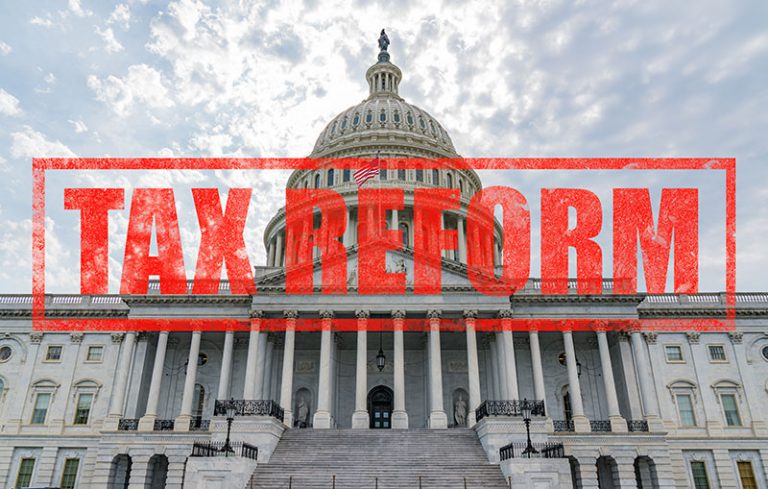
Corporate Tax System Complexity and Investment
Effective policymakers must balance the demands of formulating a corporate tax system that spurs economic activity while promoting a “level playing field” across firms. However, tax systems have become more complex over time, increasing firms’ difficulty in understanding and complying with tax regulations. We explore the role of corporate tax system complexity in both objectives, using an international sample and measuring tax system complexity based on the average time firms spend to comply with the country’s tax regulations. Examining both capital and labor investment, we document two key findings. First, firm-level investment is less sensitive to changes in corporate income tax rates when tax system complexity is higher, suggesting that such complexity can undermine the ability of tax policy to stimulate investment. Second, the impact of complexity on the sensitivity of investment to the tax rate varies significantly across firms, with domestic-owned, smaller, and private firms being more negatively affected by tax system complexity.
We examine how tax-induced organizational complexity (“TIOC”), which we define as the organizational complexity that would not exist in a zero-tax world, is associated with executive performance measurement. While these structures can facilitate lower tax burdens, firms need to design their performance measurement systems to encourage executives to manage the associated complexity to avoid potential negative consequences. Using firms’ subsidiary structures in tax havens and other low tax countries to measure TIOC, we document several main findings.
Join the Urban-Brookings Tax Policy Center and the UNC Tax Center for their annual convening, this year held virtually, on Tuesday, June 8, 2022.

The Big Price Tag to Build Back Better
The Biden administration has proposed several multi-trillion dollar initiatives to invest more federal dollars in infrastructure, education, healthcare and more. However, these big ticket items come at a significant cost, which the president hopes to cover through tax reforms. Proposed changes could affect individual income taxes for high earners, corporate taxes, international taxes and capital gains – and needless to say, the proposed reforms have drawn both strong critics and supporters. As dizzying negotiations and politicking continue in Washington, two of our experts unpack the proposed tax changes and their potential impacts on businesses and households in this week’s Kenan Insight.

Join us on Tuesday, May 11, 2021, from 1-2:40 p.m EST for Federal Tax Policy: International Outlook. This webinar, which provides 2.0 CPE credits, is the third in a series of tax policy webcasts jointly hosted by the Kenan Institute-affiliated UNC Tax Center and the AICPA.

Profit Shifting During Foreign Tax Holidays
We undertake the first empirical analysis of profit shifting by U.S. firms during foreign tax holidays.

Tax Income Shifting
There is growing evidence that many multinational corporations are lowering their tax obligations by engaging in income shifting—moving income from high-tax countries to low-tax countries or tax havens, and shifting deductions from low-tax countries to high-tax countries. By at least one estimate, the result is loss of nearly $100 to $240 billion annually in global tax revenues. In this Kenan Insight, we explore the extent of the problem and what might be done to address it.

We quantify the net effect of recent U.S. tax reform on the tax rates of public U.S. corporations and find they decreased by 7.5 to 11.4 percentage points on average following tax reform. Further, we separately examine the effect of tax reform on purely domestic firms and multinational firms because some key provisions only affect multinational firms.
Following 2 decades of discussion, the border adjustment tax (BAT) briefly emerged as part of proposed US corporate tax reform in early 2017. While heavily debated, little empirical evidence exists regarding the BAT. We take advantage of the period during which the BAT was under strong consideration to examine its effects on shareholder value.

U.S. Firms on Foreign (Tax) Holidays
We undertake the first large-sample analysis of foreign tax holiday participation by U.S. firms.

Public Tax-Return Disclosure
We investigate the consequences of public disclosure of information from company income tax returns filed in Australia. Supporters of more disclosure argue that increased transparency will improve tax compliance, while opponents argue that it will divulge sensitive information that is, in many cases, misunderstood.

Strategic Subsidiary Disclosure
Although subsidiary disclosures in firms’ filings with the Securities and Exchanges Commission (SEC; Exhibit 21) represent the most granular required public disclosure of a firm's geographic footprint, little is understood about the quality of the disclosure, and anecdotal evidence suggests firms may not fully comply with the disclosure requirements. We use data provided by multinational firms to the Internal Revenue Service regarding their foreign subsidiary locations to explore the accuracy of public subsidiary disclosures on Exhibit 21 of Form 10‐K per SEC rules.


